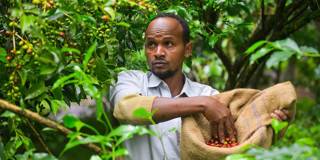The African Continental Free Trade Area Secretariat has made clear that, thanks to the AfCFTA, Africa is “open for business.” That may be true, but it will mean little unless the people running those businesses are aware of it – and reaping the benefits.
GABORONE – In the ninth century, an Ethiopian herder named Kaldi noticed something odd. Whenever his goats ate the berries of a particular tree, they seemed to get a jolt of energy. His curiosity piqued, Kaldi took some of the berries to a monastery, where the abbot took a taste and, shocked by their bitterness, tossed the berries into the fire. To both men’s surprise, however, a tantalizing aroma soon wafted in their direction. So, they removed the now-roasted berries from the fire, soaked them in water, and took the first-ever sip of coffee.

GABORONE – In the ninth century, an Ethiopian herder named Kaldi noticed something odd. Whenever his goats ate the berries of a particular tree, they seemed to get a jolt of energy. His curiosity piqued, Kaldi took some of the berries to a monastery, where the abbot took a taste and, shocked by their bitterness, tossed the berries into the fire. To both men’s surprise, however, a tantalizing aroma soon wafted in their direction. So, they removed the now-roasted berries from the fire, soaked them in water, and took the first-ever sip of coffee.